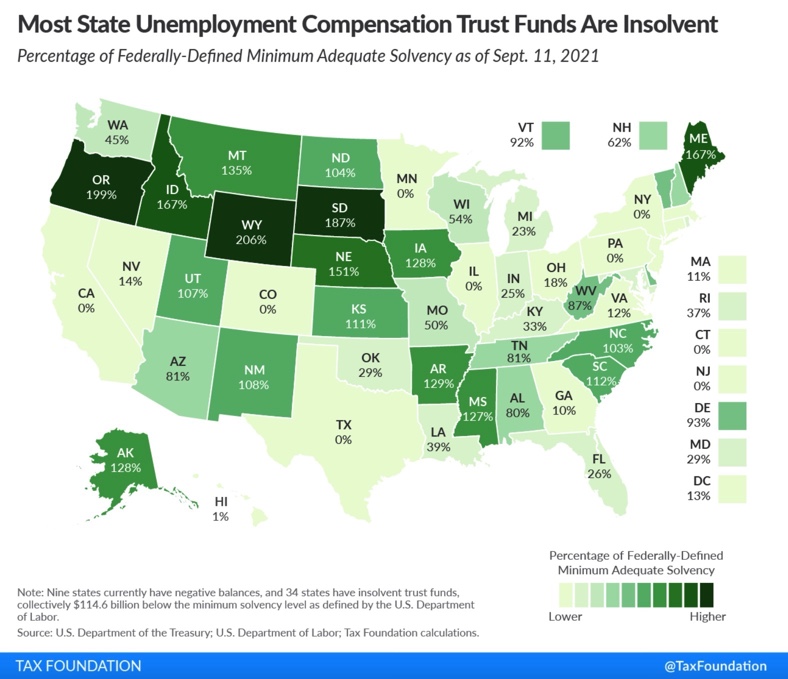Minnesota should use ARP funds to pay back federal loan, not raise tax on businesses
Since the beginning of the pandemic through Sept. 11, state governments have paid out $836 billion in unemployment payments. Minnesota has so far paid out $14.7 billion, with a huge chunk of that coming from the federal government.
Not all of that $14.7 billion was fully funded, however. Minnesota had to borrow $1.13 billion from the federal government in order to cover deficits in the unemployment insurance trust fund.
Minnesota is one of the few states whose unemployment compensation trust funds are insolvent.

Unemployment insurance tax rates could go up
One thing that is likely to happen if the debt is not paid is that employers will face an increase in their unemployment insurance rates. As the Minnpost explains:
While Minnesota’s total is small compared to some bigger states — California owes $19.5 billion — it is large enough to threaten state employers with increases in unemployment insurance taxes once a plan to pay the money back is formulated. And absent a change in state law or a move to pay the debt using something other than rate hikes, state employers could see hikes as high as 14 percent.
Businesses are, however, trying to recover. And the current worker shortage crisis is already threatening to prolong that recovery. Hiking unemployment insurance taxes would further add to the burden that businesses have to pass through and slow down hiring as individuals reenter the workforce.
Additionally, federal government debts face interest charges that accumulate over time.
What can be done
In order to prevent further burdening businesses with more taxes, Minnesota can use funds from the American Rescue Plan to pay back the federal government. This is something that a lot of states like Hawaii and Ohio have done.
While most of the ARP money has been allocated, Minnesota still has quite a significant amount to be allocated in the next session that could be used to repay the loan instead of burdening employers, especially since, as the Tax Foundation estimates, “replenishing these funds through tax revenues would require years of astronomically high tax rates on employment.”
Paying off the debt would also ensure that Minnesota focuses on replenishing the unemployment trust fund to pre-pandemic levels.